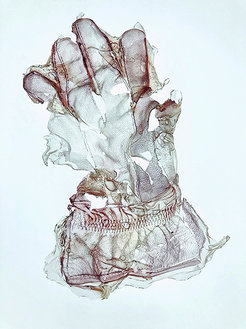Aging, Mobility, and Emotional Labor in East and Southeast Asia
Mika Toyota

One major focus of this broader research project is the highly topical aspect of care and isolation: aging and dying without family in Japan. In the last 40 years, Japanese society has experienced considerable change regarding family (non-)formation: the proportion of Japanese men who have never married (at age 50) has increased from 2.6% (1980) to 28.3% (2020), and the proportion of single-person households has increased from 19.8% (1980) to 38% (2020). The increase in the number of people who have never married or who are divorced, separated, or living without family is causing a rise in cases of unaccompanied deaths, kodokushi, where the corpses remain undiscovered for an extended period of time. For example, in Osaka City the number of unclaimed remains handled by the local authority has increased from 336 (1990) to 2,366 (2018). This has triggered widespread public anxiety, and new commercial services that replace next-of-kin support are emerging.
Through documentary research and narrative analysis on this emerging service industry in contemporary Japan, this project tackles two main questions:
1) What kind of “family replacement businesses” have emerged to provide care and service after lonely death?
2) How do these industries meet the emotional needs of the relatives of the dead, as well as the general public, and how do they maintain or change the ideology of the family?
So far, three key services have been identified that warrant further investigation: first, kodokushi insurance, which property owners can purchase to cover the costs for post-death cleaning and other measures if the tenant dies alone. Second, guarantor agency services, which provide financial and liability guarantees for single people, especially those who are elderly, in the event of renting accommodation, being hospitalized, or being admitted to a long-term nursing home. The 1933 Japanese law pertaining to the personal guarantor system requires a person to designate an individual guarantor (usually the next of kin) in these circumstances. Unmarried individuals without descendants need to seek a third-party service agency. The service agent also provides “fictive” family members who attend the mortuary practice. Third, specialized cleaning companies, which provide services including clearance of belongings, insecticide for treating flies and maggots, cleaning and disinfecting of bodily fluid stains, and the removal of the smell of the dead body from the flat or house. Social blogs and books written by cleaners have received public attention, and TV dramas, films, novels, comics, and pop songs exploring the topic have been produced and consumed. Some research findings will be presented at the conference Dying Alone and its Afterlives in Contact-less Socialities (17–19 April 2023, Harnack Haus, Berlin)
Key References
